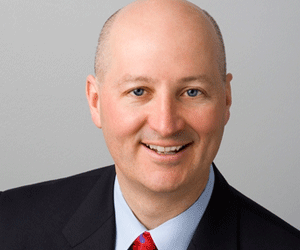
By GRANT SCHULTE and TESS WILLIAMS , Associated Press
Ricketts pledged in an Associated Press interview to keep trying to build a contingent of supporters that’s large enough to overcome senators who oppose it in next year’s session. The governor’s property and corporate income tax package was derailed by a filibuster during the 60-day session that ended Wednesday.
“We’ll continue to look for solutions in the future to build that broad coalition,” Ricketts said.
Supporters of the governor’s plan said it would have eased the tax burdens on farmers who have seen their property taxes spike in recent years and helped businesses by lowering the state’s top corporate income tax rate. Some rural senators said the benefits wouldn’t have come fast enough, while other lawmakers argued there wasn’t a specific way to pay for it in the future.
Additionally, the plan was forced to compete with other property tax bills. One major proposal would have paid for property tax cuts by raising Nebraska’s sales and cigarette taxes, while another would have used more than $1 billion a year in state revenue — roughly one-fourth of the state’s annual budget.
Ricketts, a Republican who is up for re-election in November, said he and the bill’s sponsor, Sen. Jim Smith, of Papillion, tried repeatedly to find common ground with senators.
“It was changed throughout the entire process, and I believe we ended up with a very good bill,” Ricketts said. “We compromised all along the way, but we would not compromise on our principles of not raising taxes.”
He said he opposed the competing bills because one would raise taxes and the other would cause major disruptions in state services, possibly necessitating a tax increase. Because rural senators are now a minority in the Legislature, Ricketts said tax bills will need to provide benefits to rural and urban residents to have a chance at passing.
“If they insist on tax relief for just farmers and ranchers, that bill’s not going anywhere,” he said.
The governor’s proposal would have offered income tax credits to reimburse a portion of the property taxes paid by agricultural landowners and homeowners. Commercial property wouldn’t see any new benefit, but the bill would lower Nebraska’s top corporate income tax rate and pump $5 million a year into job training programs.
Ricketts praised lawmakers on other matters, including their success in balancing the state budget, eliminating some state regulations and raising the speed limit by 5 mph on state highways. He also touted their vote on a measure that will prevent health clinics from getting federal family-planning dollars if they provide abortion services or provide referrals to groups that do.
Sen. Bob Krist, of Omaha, a Democratic candidate for governor, said Ricketts failed to unite urban and rural senators behind major property tax legislation. Krist said Ricketts was trying to blame the Legislature for his inability to pass the bill.
“Frankly, he lacks the leadership skills necessary to move our state forward,” said Krist, a former Republican who frequently clashed with the party.
Ricketts dismissed the criticism as “a purely political attack,” and referred questions to his campaign.
Asked about Krist’s comment, Ricketts campaign spokesman Matthew Trail called them “empty rhetoric.”
“As a senator, Krist hasn’t introduced property tax relief, and the Legislature has failed two years in a row to pass property tax relief measures put forward by the governor,” Trail said.
One of the property tax measures that failed in the Legislature could end up on the November general-election ballot. Sen. Steve Erdman, of Bayard, a Republican who helped launch a citizen ballot drive, said he has seen a surge of voters who want to sign the petition.
“It’s like nothing I’ve ever experienced,” Erdman said. “The signature people say it’s one of the easiest signatures they’ve ever asked for.”
